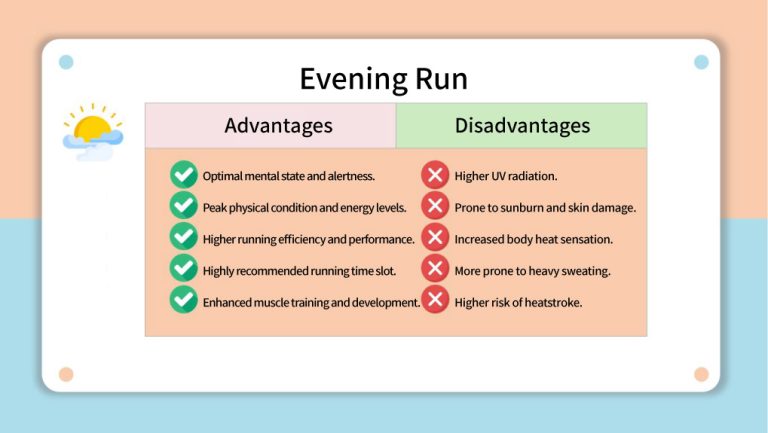Why Not to Run a Marathon
Running a marathon can be physically demanding and may increase the risk of injury. It requires extensive physical training and mental preparation which can be time-consuming and daunting.
Many people may be deterred from running a marathon due to the rigorous training and potential risk of injury. While the sense of achievement and personal fulfillment from completing a marathon can be rewarding, there are valid reasons why some individuals may choose not to pursue this distance race.
Factors such as time commitment, physical strain, and potential health risks are important considerations when contemplating participation in a marathon. This article aims to explore the reasons why some individuals may opt not to run a marathon and the factors they should carefully consider before making this decision.
Impact On Physical Health
While the idea of crossing the finish line of a marathon may be enticing, it’s important to consider the potential impact on your physical health. Running a marathon is a monumental undertaking that requires months of preparation and dedication. While some people thrive on the challenge, it’s not for everyone. Let’s explore two key aspects of physical health that can be affected by running a marathon: injuries and overuse, and cardiovascular stress.
Injuries And Overuse
Marathons are notorious for putting immense strain on your body, which can lead to a variety of injuries and overuse problems. The repetitive nature of running long distances at a high intensity increases the risk of developing conditions such as:
- Shin splints: These are common among marathon runners and occur when the muscles surrounding the shinbone become inflamed.
- Stress fractures: The constant pounding on hard surfaces can cause tiny cracks in the bones, resulting in stress fractures.
- Tendonitis: Overuse can lead to inflammation of the tendons, causing pain and discomfort.
- Runner’s knee: Also known as patellofemoral pain syndrome, this condition is characterized by pain around the kneecap and can be exacerbated by the repetitive motion of running.
It’s crucial to recognize that injuries sustained while training for or participating in a marathon can have long-lasting effects on your overall physical health. Recovery from these injuries can be time-consuming and may require extended periods of rest and rehabilitation.
Cardiovascular Stress
Running a marathon places significant stress on your cardiovascular system, pushing it to its limits. This intense endurance event can lead to both short-term and long-term effects, including:
- Increased heart rate: The sustained intensity of running for an extended period of time causes your heart to work harder, resulting in a higher heart rate during the race.
- Elevated blood pressure: The combination of physical exertion and dehydration can cause temporary spikes in blood pressure during and after the race.
- Cardiac fatigue: Endurance events like marathons can result in temporary cardiac fatigue, impacting the heart’s ability to function optimally for a period of time.
- Cardiovascular injury: The extreme stress placed on the heart and blood vessels during a marathon can potentially lead to serious cardiovascular events, especially in individuals with pre-existing conditions.
While the cardiovascular system is adaptable and can benefit from regular exercise, it’s important to consider the potential strain and stress that running a marathon can place on your heart and blood vessels.

Credit: fremont.edu
Impact On Mental Health
The decision not to run a marathon can safeguard your mental health, preventing burnout and emotional strain. Taking care of your well-being is crucial, so listen to your body and prioritize self-care.
Impact on Mental Health Running a marathon can have a significant impact on an individual’s mental health. The intense physical and psychological demands of marathon training and racing can lead to various mental health challenges, affecting an individual’s well-being. Burnout and Exhaustion The rigorous and demanding training required for a marathon can result in burnout and exhaustion. The constant pressure to meet training goals and the physical toll of long-distance running can leave runners feeling mentally drained and fatigued. Pressure and Anxiety The pressure to perform well in a marathon can lead to significant levels of anxiety. The fear of not meeting personal expectations or comparing oneself to others can create an overwhelming sense of pressure, leading to heightened anxiety levels. These mental health impacts can significantly affect a runner’s overall well-being and should be carefully considered before undertaking the commitment of training for a marathon.Time And Commitment
Running a marathon requires a significant amount of time and commitment. The demands of training and the need to balance personal life can be overwhelming for many individuals. Let’s delve into the specific aspects of time and commitment when it comes to preparing for a marathon.
Training Demands
Marathon training involves meticulous planning and adherence to a strict schedule. Long-distance running, cross-training, and regular strength training are essential components of marathon preparation. Each week, runners must allocate ample time for long runs to build endurance, along with shorter runs for speed and recovery. Additionally, consistent commitment to stretching, mobility exercises, and adequate rest is crucial for injury prevention and overall performance enhancement.
Balancing Personal Life
The commitment required for marathon training often intrudes upon one’s personal life and social obligations. Balancing work, family, and training can be a daunting task. Early mornings and late evenings become the norm to fit in training sessions, which could lead to sleep deprivation and overall fatigue. This can impact relationships and leisure activities, potentially causing strain and frustration.
Credit: www.abc.net.au
Financial Cost
The decision to run a marathon can bring many benefits, from improved mental and physical health to a sense of accomplishment. However, before embarking on this endurance challenge, it’s crucial to understand the financial cost that comes along with it. Running a marathon can be an expensive endeavor, and it’s important to consider the impact on your wallet before committing to the race.
Entry Fees
One significant aspect of the financial cost of running a marathon is the entry fee. Race organizers charge participants an entry fee, which can vary depending on the location, popularity of the event, and the reputation of the marathon. These fees can range from around $75 to a few hundred dollars and sometimes even more, especially for major marathons such as the Boston Marathon or the New York City Marathon. Considering this cost is essential as it’s a non-refundable investment in your marathon experience.
Gear And Equipment
Aside from entry fees, another financial consideration when running a marathon is the necessary gear and equipment. Marathon training requires high-quality running shoes, which typically cost around $100 or more. Additionally, long-distance runners need comfortable and moisture-wicking apparel, such as compression socks, breathable shirts, and supportive sports bras. Depending on your preferred brand and quality of gear, these expenses can add up quickly. It’s important to prioritize your safety and comfort during training, but it’s also crucial to budget accordingly to avoid overspending.
In addition to clothing and shoes, other equipment such as a GPS watch or heart rate monitor may be desired to track your progress and performance during training and on race day. While some runners prefer the simplicity of tracking their runs using smartphone apps, others opt for more specialized devices. These can range in price from $50 to several hundred dollars, depending on the features and brand.
Overall, running a marathon can lead to significant financial costs. Entry fees, gear, and equipment are just a few of the expenses to consider. However, it’s important to remember that these costs are investments in your health, fitness, and personal achievements. By planning and budgeting wisely, you can ensure a more enjoyable and financially manageable marathon experience.
Alternative Fitness Goals
Alternative Fitness Goals:
Diverse Workout Plans
Diversify your regimen for long-term health benefits.
Exploring Different Sports
Try various activities to keep fitness engaging and exciting.

Credit: www.runtothefinish.com
Frequently Asked Questions For Why Not To Run A Marathon
When Should You Not Run A Marathon?
Avoid running a marathon if you have any underlying heart or respiratory conditions, recent injuries or surgeries, or if you are pregnant. Additionally, if you haven’t trained enough or are experiencing illness or extreme fatigue, it’s best to skip a marathon.
Listen to your body and consult a doctor if unsure.
Is It Bad For Your Heart To Run A Marathon?
Running a marathon can strain the heart, but generally, it’s not bad for your heart if you train properly. Consult with a doctor before starting.
What Was Oprah Time In The Marathon?
Oprah’s marathon time was 4 hours, 29 minutes, and 20 seconds.
Conclusion
To sum up, while marathons may seem like a significant achievement, it’s crucial to consider the potential drawbacks they bring. From the risk of physical injuries and the toll on mental health to the demanding training schedule, running a marathon requires a significant commitment.
It’s vital to listen to your body and evaluate whether it aligns with your goals and overall well-being. So, before lacing up your running shoes, weigh the pros and cons before committing to this challenging endeavor.





